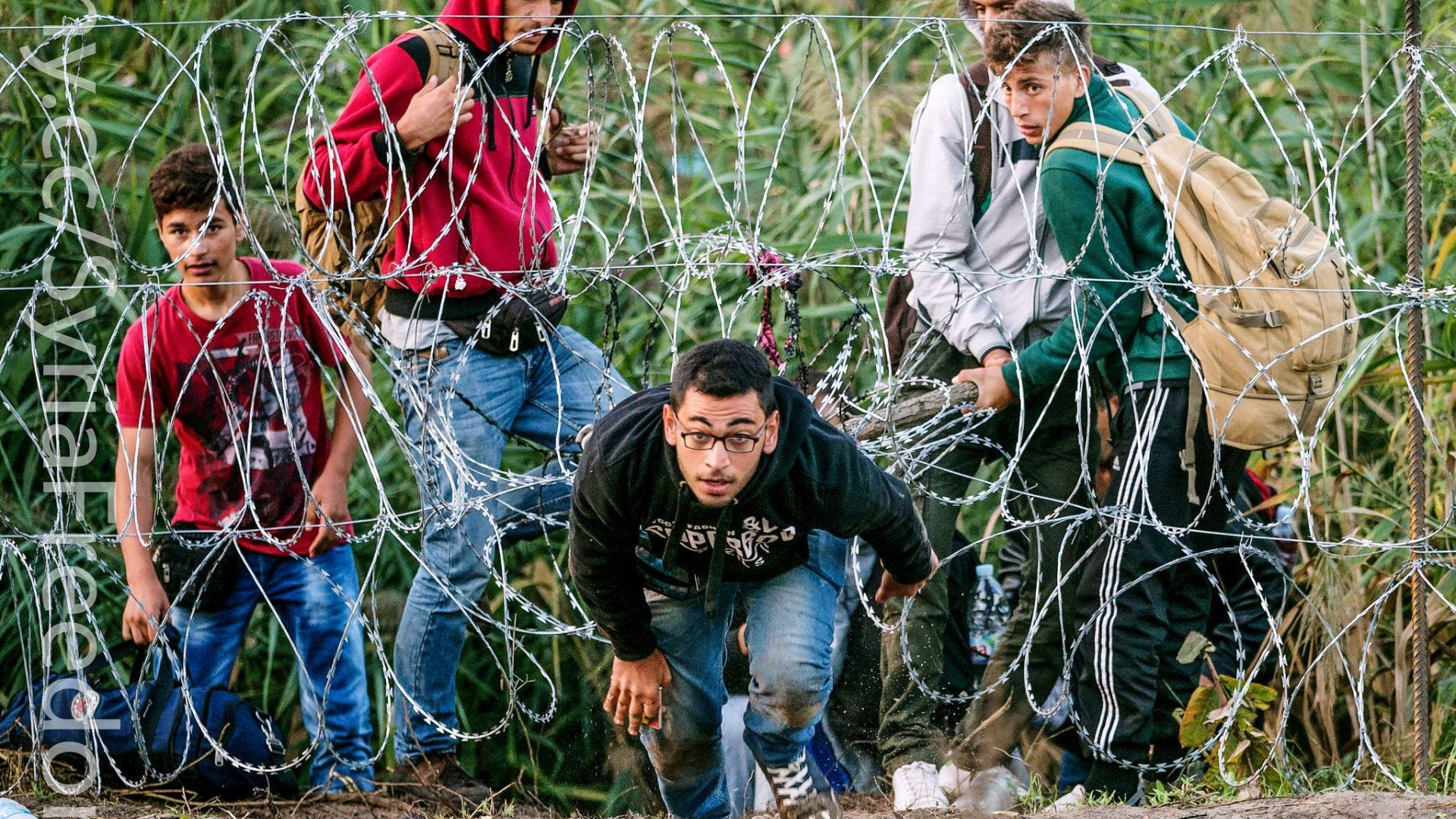Western Europe stands at a critical crossroads, caught in the throes of a refugee crisis that continues to escalate in both scale and complexity. What began as a logistical and economic challenge has morphed into a profound social and cultural dilemma, one that now threatens the very fabric of these societies. The influx of refugees from conflict-ridden regions like Ukraine, Syria, Afghanistan, and Palestine has introduced a mosaic of values, beliefs, and experiences that often stand in stark contrast to those of the host nations. This has created a multifaceted challenge, testing the limits of social cohesion, national identity, and the core values that Western Europe has long held dear.

Integration and the Strain on Western Values
At the heart of the crisis lies the challenge of integrating refugees into Western European societies—societies that pride themselves on upholding values such as democracy, freedom, and human rights. The strain on these ideals has become increasingly pronounced as the number of refugees swells. Integration is not simply a matter of providing shelter or economic support; it involves embedding these new populations into the social and cultural milieu in a way that maintains social harmony. The arrival of large numbers of refugees has sparked intense debates about national identity and the capacity of these societies to absorb new cultural influences without losing their own distinctiveness.
The cultural and social integration of refugees is particularly challenging when the values and experiences they bring with them differ markedly from those of their host societies. Western European countries must balance their commitment to inclusivity with the need to preserve social cohesion. The difficulty of this task is exacerbated by the sheer diversity of the refugee populations, each bringing their own unique set of challenges to the table.
Geopolitical Considerations and Social Cohesion
Adding another layer of complexity to the refugee crisis are the geopolitical considerations that influence national policies. Western Europe’s support for Ukraine in its ongoing conflict with Russia has been widely supported within these societies. The arrival of Ukrainian refugees has often been met with solidarity, as their plight resonates with Western European values of resistance against aggression and the fight for democracy. Ukrainian refugees are not only seen as victims of war but as individuals whose struggles align with the broader geopolitical interests and values of their host nations.
However, this sense of alignment and mutual understanding is less evident in the case of refugees from the Middle East, particularly those from Palestine or other Arab nations. Many of these refugees flee to Western Europe to escape violence, persecution, and economic hardship, only to find themselves in countries that have political and military ties to Israel, a state they may view as complicit in their suffering. This stark dichotomy between the foreign policies of their host countries and their own lived experiences can foster feelings of alienation and resentment among these refugees.
The contradiction is stark: while some Western European countries offer asylum to Palestinian refugees, they simultaneously maintain policies that align with Israel, creating a sense of dissonance. This dissonance can lead to tensions within the refugee communities and between these communities and their host societies. The resulting tensions sometimes erupt in protests or other forms of dissent, highlighting the deep contradictions at play.
Rise of Nationalism and Fragility of Social Cohesion
The rise of nationalist and far-right movements across Europe further complicates the narrative. These movements, which often exploit fears about immigration and cultural change, argue that the influx of refugees threatens national identity and social cohesion. They call for stricter immigration controls and even the repatriation of refugees. The growing influence of these movements underscores the fragility of the social contract in Western Europe and highlights the challenges of maintaining a cohesive society in the face of significant demographic and cultural shifts.
These movements capitalize on the genuine concerns of citizens who fear that their national identity and social stability are at risk. The challenge for Western European governments is to address these concerns without resorting to exclusionary or xenophobic policies that would undermine the values of inclusivity and human rights that they seek to uphold.
Historical and Moral Imperative
In navigating this complex landscape, Western Europe must also confront its own historical legacy. The colonial history of many Western European nations has played a significant role in shaping the very regions from which these refugees now flee. The instability and conflict in parts of the Middle East, for example, are inextricably linked to historical and ongoing Western interventions. This creates a moral imperative for these countries to offer refuge to those displaced by violence and persecution.
The question remains: Can Western Europe uphold the values of freedom, democracy, and human rights while also addressing the legitimate concerns of its citizens about social cohesion and national identity? The answer will likely shape the future of the continent, determining whether Western Europe can remain a beacon of inclusivity and human rights in an increasingly polarized world, or whether it will retreat into nationalism and exclusion, betraying the very ideals it seeks to promote.
Path Forward
Western Europe’s tightrope walk on the refugee question is fraught with challenges, but it also presents an opportunity. The refugee crisis is not merely a test of humanitarian resolve; it is a test of the resilience and adaptability of Western societies. The ability of these societies to integrate diverse populations while maintaining social harmony will determine whether Western Europe can continue to lead by example on the global stage.
To succeed, Western European nations must engage in a nuanced and inclusive dialogue that considers the concerns of all stakeholders—citizens, refugees, and geopolitical allies alike. This dialogue must be grounded in the values of democracy, freedom, and human rights, but also in a realistic assessment of the challenges posed by the refugee crisis. Only by walking this tightrope with care and conviction can Western Europe hope to navigate the complexities of the refugee crisis and emerge stronger on the other side.




